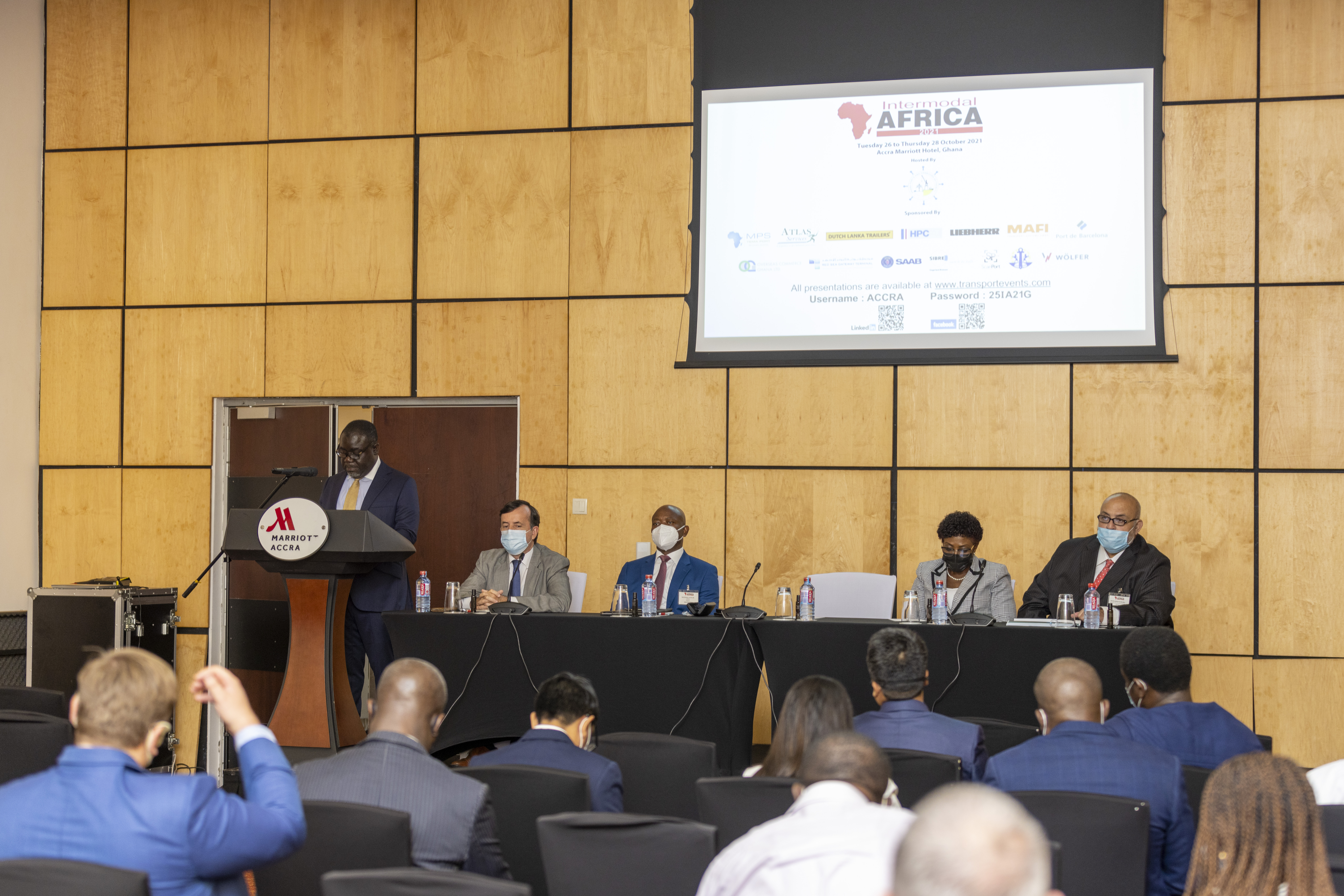“Ghana and the West African Sub-region are filled with unexploited Trade & Industry potentials”. This submission was made by the Chief Executive Officer of Meridian Port Services Ltd, Mr. Mohamed Samara, during a presentation at the 2021 INTERMODAL AFRICA- Conference and Exhibition held in Accra on 27th October.
Speaking on the topic “Creating Hub for Global Trade and Connecting Markets Throughout Africa And Beyond”, Mr. Samara explicitly provided insights into the available trade and industry opportunities backed by tangible data.
Elaborating on these prospects and using the achievements of MPS Terminal 3 as illustration of a magnificent growth in transhipment volumes from 2019 to date. He disclosed that since the launch of Terminal 3 with the increased capacity coupled with the improved service levels, stimulated the subsequent desire by the world’s leading Shipping Lines to use the MPS Terminal 3 a hub for some of their liner services and trade routes.
This indicated with all the present conducive factors, that there was room for more producer-consumer connectivity to be established leading to the formation of Tema Port as a hub.

To institute the facts, he outlined key features including the substantial Market and Consumers size in West Africa, proximity to the market, significant population, availability of Skilled and Semi-Skilled as well as the unforeseen markets’ growth brought by the pandemic.
The demographics also show that the region has a youthful population representing the availability of young manpower which when provided with the needed skills can drive the economic growth of the region.
Trading has started within the African Continental Free Trade Area (AfCFTA) following the ratification of some countries. In West and Central Africa, almost all the countries have ratified presenting a substantial market which translates into a high untapped consumer size.
To ensure the success and development of Tema as a hub, Mr. Samara proffered some key actions that needed to be implemented to address existing challenges.
These include improvement of energy supplies (reliability and costs effectiveness), creating adequate regional transport corridors to efficiently connecting producers to consumers and improving the economy of scale for local producers to reduce the heavy dependence on imported goods from the traditional foreign sources.
Energy supply remains quite expensive and unreliable. There is the need for the power infrastructures to be built and for Governments to find efficient ways of producing energy supply to lessen erratic supply and the high cost associated with acquiring energy for manufacturing and service provision. The extent of power infrastructure investments needed is substantial which will require scaling up resource allocation for development (public and private).
According to the CEO, another challenge that needs to be addressed is to Ease & Secure property acquisition for investors and industries to build on and expand.
He added that, while the AfCFTA is a long-awaited initiative, it is of great consequence to brace the domestic products competitive entry into regional markets. Also, it is necessary to remove regional trade barriers (Non-Tariff Barriers and Technical Barriers to Trade) as well as upgrading the relevant laws & regulations where needed.
The Minister of Transport, Hon. Kwaku Ofori Asiamah who was the Keynote Speaker in his speech enumerated some key interventions done by the Government in the Transport Sector. He also urged the various players to implement a holistic and strategic response for enhanced transport connectivity that goes beyond traditional solutions.
“we need to improve cargo movement through a resilient logistics and supply chain sector while enriching customer experience and shaping the next-generation port industry through technology and automation” said Hon. Asiamah.
The Minister visited the assembled exhibition stands where he inspected the participating companies lined up to showcase their products and services.
The 2021 edition of the biennial Conference, featuring high level transport and logistics executives was focused on addressing topical issues and challenges on global transportation and logistics.

No Comments